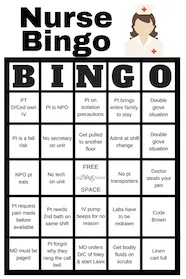Nursing theories are something you learn in nursing school. But don’t just glaze over this part. Understanding these theories and the nurse theorists that created them can greatly impact your nursing job.
Table of Contents
What Are Nursing Theories?
Nursing theories are basically a philosophy or a way of looking at the nursing profession. There have been hundreds of authors and nursing pioneers who have helped to construct how we view nursing today. Some of the theories help us understand how to communicate with patients, care for them, and encourage healing.
A paper published by the University Hospital Wales states that a nursing theory “helps nurses to understand their purpose and role in the healthcare setting.”
What are Nursing Models?
Nursing models provide structured frameworks that help organize a nurse’s scope of care. Grounded in nursing theories and scientific evidence, these models guide patient care, practice, research, and education. Some notable examples include Roy’s Adaptation Model, Roper-Logan-Tierney’s Model, Rogers’ Theory, Peplau’s Theory, and Parse’s Theory, each offering a unique perspective on nursing care and the nurse-patient relationship.
These models serve as a navigational tool for nurses amidst the multifaceted healthcare environment, offering a defined scope of practice. Nursing models help nurses in their daily interactions with patients by translating theoretical concepts into practical guidelines, as explained by the University of Wisconsin–Madison. They simplify complex phenomena, offering a more precise understanding and organization of nursing practice.
Furthermore, nursing models can be categorized into traditional and contemporary types. Traditional models like total patient care, functional nursing, team nursing, and primary nursing have been longstanding. On the other hand, current models, like patient-centered care, focus on evolving healthcare needs and patient empowerment. Each with its unique advantages, disadvantages, and impacts on quality outcomes, as detailed on ScienceDirect. Through these models, nursing professionals can better comprehend and navigate the diverse landscape of patient care, contributing to improved healthcare delivery and patient outcomes.
Nursing Theories vs Nursing Models
Nursing theories and models are integral in guiding nursing practice, yet they serve distinct roles. Nursing theories offer a conceptual framework that defines and describes nursing, explaining the underlying principles that guide nursing practice and research. They provide a systematic view of nursing by organizing the relationships between concepts to describe, explain, predict, and control nursing practice. On the other hand, nursing models are structured frameworks derived from these theories, providing a more practical approach to nursing care. They translate the abstract concepts from nursing theories into actionable guidelines that nurses can follow in their day-to-day interactions with patients.
While nursing theories delve into the abstract and conceptual aspects of nursing, offering a broad understanding, nursing models provide a more focused and structured approach to patient care. They apply the general principles outlined in nursing theories in a practical setting, ensuring that the care provided aligns with the underlying theoretical foundations. By doing so, nursing models help organize and deliver care, emphasizing the systematic application of nursing theories to real-world practice, and ensuring a cohesive and comprehensive approach to patient care. Nursing theories and models contribute to nursing practice’s ongoing evolution and improvement through this symbiotic relationship.
Types of Nursing Theories
There are three primary types of nursing theories, each with a different scope and level of abstraction. They are:
- Grand Nursing Theories: These theories are highly abstract and broad in scope, aiming to provide a conceptual framework for the entire nursing discipline. They explore the fundamental principles and concepts of nursing and are often not directly testable due to their level of abstraction. Examples include Orem’s Self-Care Theory and Roy’s Adaptation Model.
- Middle-Range Nursing Theories: These theories are less abstract than grand theories and focus on specific phenomena or concepts within nursing. They are more easily applied to practice and are often developed through research.
- Practice (or Situation-Specific) Nursing Theories: These theories are the most concrete and narrowly focused, often developed for a specific type of patient or a narrowly defined group of situations. They are derived from grand and middle-range theories but are designed to guide practice directly. Examples might include a theory on managing pain in pediatric patients, or coping with chronic illness.
Each of these types of theories plays a crucial role in advancing nursing knowledge, guiding practice, and improving patient care. While grand theories provide a broad perspective and foundation for the nursing profession, middle-range theories offer a closer look at specific nursing phenomena, and practice theories provide actionable guidelines for specific situations within nursing practice.
12 Essential Nursing Theories & Nurse Theorists
While there are enough nursing theories out there to fill a book, I picked out the 12 most applicable and useful nursing theories. These are some of the main ones that nurses still use today. Learning about them could give you a clearer view of your job as a nurse and help you discover new motivation and purpose.
Read through these theories and ask yourself how they can apply to your job and help you become a better nurse.
1. Environmental Theory – Florence Nightingale
Florence Nightingale created this theory back in 1859. It states the extreme importance and influence of the environment in the health and healing of patients.
According to Florence Nightingale, this theory “ought to signify the proper use of fresh air, light, warmth, cleanliness, quiet, and the proper selection and administration of diet – all at the least expense of vital power to the patient.”
Following this method means you try to make the patient’s room a place of healing. It also means keeping it clean, ensuring they are eating right, and helping them have access to plenty of light and fresh air. It also means the patient has a voice and a say in all of this. Listen to them and help them understand why you administer care the way you do.
2. Theory of Interpersonal Relations – Hildegard E. Peplau
Hildegard E. Peplau developed her theory in 1952. It looks closely at the effect of the nurse’s interactions with the sick and how they heal.
According to the Nursing Theory website, it is comprised of four parts.
The four components of the theory are: person, which is a developing organism that tries to reduce anxiety caused by needs; environment, which consists of existing forces outside of the person and put in the context of culture; health, which is a word symbol that implies forward movement of personality and other human processes toward creative, constructive, productive, personal, and community living.
This theory is used a lot in psychiatric nursing. You can put it into practice by understanding how the environment and the patient’s needs affect their overall health.
3. Maternal Role Attainment Theory – Ramona Mercer
Ramona Mercer created this theory about nursing care and interventions for mothers. It looks closely at the bond mothers have with their newborn babies and how nurses can help facilitate it. She did most of her studies in the 1970s, learning about parenting in low and high-risk situations.
This is a very important theory to know if you want to be a neonatal nurse or work on the labor and delivery floor.
4. Nursing Process Theory – Ida Jean Orlando
We can thank Ida Jean Orlando for developing this theory. Because of it, we now understand the importance of a nursing care plan for different scenarios.
This theory not only establishes the necessity of nursing care plans, but it also establishes the importance of communicating effectively with patients. According to her, patients have their own interpretations of their health and situation. Nurses ought to validate their analyses with the patient before drawing conclusions.
5. Tidal Modal Theory – Phil Barker
Another theory that deals mostly with mental health is the Tidal Modal Theory by Phil Barker.
People need to gain control of their lives for them to heal and improve. This theory gives a framework to explore the patient’s need for nursing care, and for how to create an individual care plan.
Like the nursing process theory, this one gives power and respect to the patients. They know what they are experiencing and they have the power to begin the healing journey. Nurses should be curious, asking lots of questions and learning all they can from the patient.
6. Nursing Need Theory – Virginia Henderson
Virginia Henderson, a distinguished nurse, author, and theorist, devised the Nursing Need Theory, which emphasizes aiding patients to attain self-sufficiency by addressing their fundamental needs. This approach enhances patients’ recovery rates and guides them towards health independence, or a peaceful demise when necessary. Henderson’s intent behind this theory was not to create a new nursing paradigm, but to elucidate the unique focus of nursing practice; defining nursing as aiding individuals in performing activities contributing to health or its restoration, as detailed in Nurseslabs.
The essence of Henderson’s theory bridges the gap between patient needs and self-sufficiency, shedding light on nurses’ crucial role in healthcare. By understanding and applying the principles of the Nursing Need Theory, nursing professionals can better address patient needs, thereby enhancing healthcare delivery and patient outcomes. Through this theoretical lens, Henderson has imparted a lasting insight that resonates in contemporary nursing practice, facilitating a better comprehension of the interplay between patient needs and nursing care.
7. Philosophy and Theory of Transpersonal Caring – Jean Watson
In 1979, Jean Watson created the theory of transpersonal caring. This theory looks beyond treating disease to promoting overall health and preventing disease.
It looks at how nurses care for patients and how those care plans can promote overall health and wellness, prevent disease, and restore health.
If you prefer the more humanistic approach to nursing, you will love this theory. She taught that caring for people holistically promotes better health than a simple medical cure. The word you will read over and over as you study Jean Watson’s theory is caring. Caring is essential to nursing. A caring environment accepts people as they are and helps them become healthier.
8. Advancing Patient-Centered Nursing – Faye Abdellah
Faye Abdellah pioneered the “Twenty-One Nursing Problems Theory,” marking a significant paradigm shift in nursing. Her theory introduced the concept of nursing diagnosis, suggesting that nurses could actively contribute to this process through their job responsibilities, as detailed in Nursing Theory and Health Research Funding sources.
Abdellah’s theory emphasized a patient-centered approach, advocating a shift from a disease-centered to a patient-centered model. This framework laid a foundation for nurses to identify a patient’s problems and develop care plans, guiding them to look beyond medical diagnoses, and focus on fulfilling patients’ comprehensive health needs, as highlighted by Nurse Labs and Bradley University Online.
9. Neuman Systems Model – Betty Neuman
Betty Neuman is a notable nursing theorist known for developing the Neuman Systems Model, which adopts a holistic view of patients and their interactions with external and internal environmental stressors. At the heart of Neuman’s theory is the idea of energy resources enveloped by three defensive lines:
- the normal line of defense symbolizing the patient’s equilibrium
- the flexible line of defense representing the adaptive and response capacity
- and several lines of resistance depicting internal factors aiding against stressors, as detailed on Nursing Theory.
Neuman’s model visualizes individuals as open systems in a state of constant interaction with environmental forces, striving for systemic stability. This model encapsulates a comprehensive, holistic, and system-based approach to nursing, offering a structured yet adaptable framework. Through the Neuman Systems Model, nursing professionals can better manage the complexities entailed in patient care, thus enhancing the quality and effectiveness of nursing practice by providing a better understanding and organization of nursing care in response to patients’ diverse needs and conditions.
10. Science of Unitary Human Beings – Martha Rogers
The Science of Unitary Human Beings is a distinctive nursing theory crafted by Martha E. Rogers, embodying both the scientific and humanitarian aspects of nursing. This theory views patients as “unitary human beings” who are indivisible and should be perceived holistically. Rogers proposed that patients have the agency to consciously partake in the change process, underlining an intrinsic connection between individuals and their environments.
Martha Rogers emphasized that nursing is a blend of science and art, with its uniqueness in the phenomena it focuses on. The overarching goal is to promote health and well-being for individuals, irrespective of their circumstances. Rogers meticulously articulated these theoretical insights in her landmark book, “An Introduction to the Theoretical Basis of Nursing.” Through the Science of Unitary Human Beings theory, Rogers has provided a robust foundation that continues to guide and inspire the nursing community in delivering holistic and patient-centric care.
11. Transcultural Nursing Theory – Madeleine Leininger
The Transcultural Nursing Theory, devised by Madeleine Leininger, underscores the importance of cultural awareness in healthcare. Also known as Culture Care Theory, it advocates for culturally congruent nursing care, aligning care practices with an individual’s or group’s cultural beliefs, values, and lifestyle. This theory is pivotal in a globalized world, promoting cultural competence among healthcare providers to ensure effective and respectful care across diverse cultural settings.
Leininger’s groundbreaking work has also pioneered Transcultural Nursing as a distinct discipline during her tenure at the University of Washington in the early 1970s. Her theory enhances therapeutic nurse-patient relationships and improves healthcare outcomes by ensuring culturally tailored care practices, thus promoting patient satisfaction and adherence to care plans.
12. Theory of Goal Attainment – Imogene King
Imogene King pioneered the Theory of Goal Attainment in the early 1960s. This pivotal time was when nursing veered from a task-oriented to a more patient-centered approach. This theory posits a dynamic, interpersonal relationship where patients grow and develop to attain life goals, with nurses and patients collaborating to achieve mutually agreed-upon goals. The Theory of Goal Attainment elucidates factors like roles, stress, space, and time, which can impact goal achievement, aiding nurses in fostering a nurturing nurse-patient relationship to help patients meet their health goals.
Imogene’s insightful work provided a theoretical scaffold and significantly contributed to nursing theory development. Her theories, including the interacting systems theory of nursing, have been integral in every significant nursing theory text, showcasing her extensive impact on the nursing profession and education. Through her Theory of Goal Attainment, King has facilitated a deeper understanding and appreciation of the patient-nurse relationship, enhancing the effectiveness and quality of nursing care.
Nursing Theories Shape Your Role as a Nurse
As you study more nursing theories, you’ll discover more about yourself as a nurse. Do you feel more comfortable thinking about numbers and figures, or are you drawn to caring for the whole person? Defining your own nursing theory can help you understand how to better help people who come to you for help.
More Nurse Life Inspiration
Nurses, we have to stick together. Keep inspiring and encouraging each other. I hope that these posts lift you up and give you fresh motivation.
- New Nurse Tips: Owning Your First Year As A Nurse
- 27 Relatable Night Shift Memes For All Nurses
- The 35 Most Hilarious Nurse Cartoons That Are So Relatable
Download Nurse Bingo Today!

Liven up any shift with a fun game of bingo. See who can fill a row first!
Fill a whole card and lose grip with reality.
Your privacy is protected. We will never spam you.






